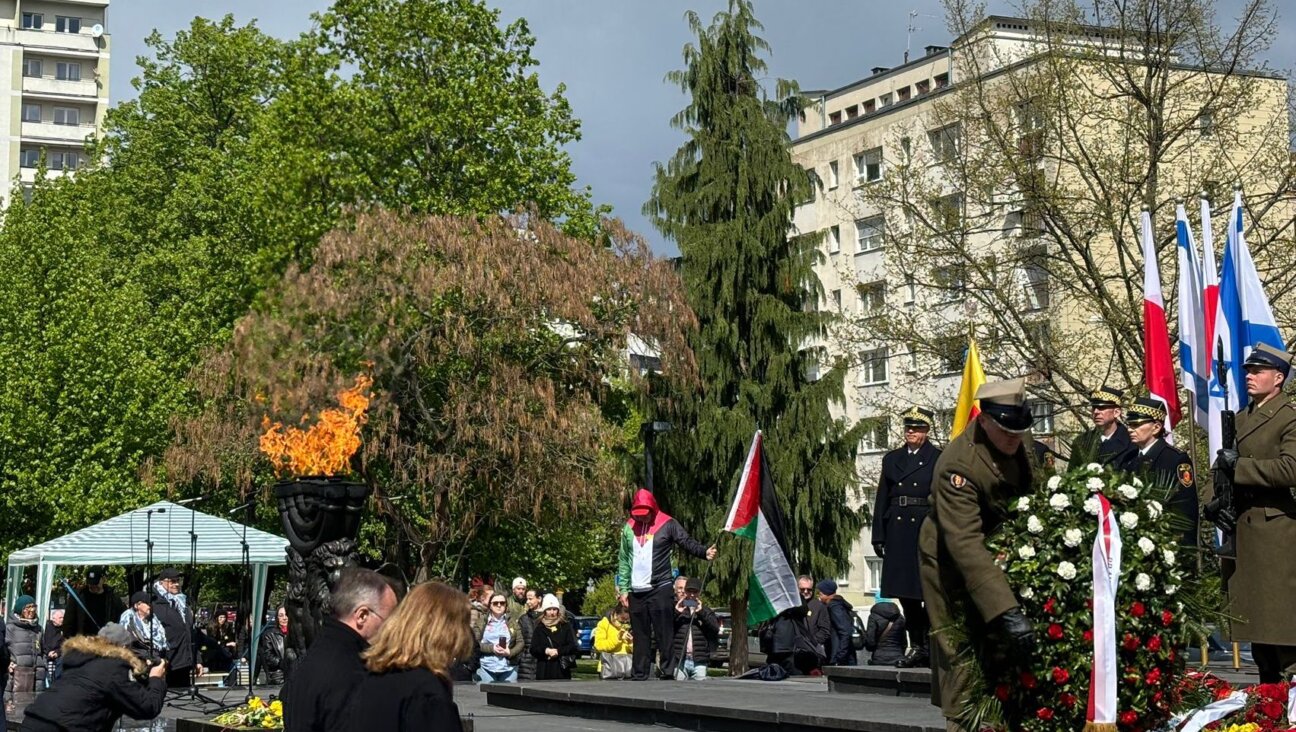Barenboim Cancels Ramallah Visit, Amid Controversy Over His Foundation
Unlike the cancellation of Leonard Cohen’s concert in Ramallah, which got a lot of press, the cancellation of conductor and pianist Daniel Barenboim’s visit to the West Bank city has been kept almost secret.
Both cancellations were spurred by different Palestinian groups which warned against what they described as the normalization with the occupation and with Israel. Barenboim, who has performed in Ramallah several times in violation of military orders banning Israelis from entering, was not going to give a concert this time. He was going to Ramallah to attend an opera in Arabic, written to the music of the Basque composer Juan Crisostomo de Arriaga who died at age 20 in 1826.
The performers, most of them children, are members of the Children & Youth Choir of the Barenboim-Said Foundation, the Choir of the Arab Evangelical School in Ramallah and the Youth Orchestra of the Barenboim-Said Foundation and Al Kamandjati.
Barenboim started the foundation along with his friend, the Palestinian theorist Edward Said, in 2003, not long before the latter’s death. The foundation, which saw the creation of the music schools in Ramallah and Nazareth among other projects, declares as its main objective the “integrat[ion] of music into the fabric of society, from which it distanced itself throughout the course of the 20th century as a result of a general trend of specialization.”
Last March, as soon as word got out that the school intended to perform the opera in Ramallah’s cultural Palace, opposing voices surfaced demanding the city refuse to rent out the space. The Barenboim-Said Foundation learned by mid-June that the city council had decided against leasing the hall, with a vote of 6 to 5.
With time, however, it became apparent that the various political forces influencing the municipal arena did not see eye to eye. The parents of the children, who spent months rehearsing, were also opposed to the city’s ruling.
Pressure was also exerted from Palestinian President Mahmoud Abbas’ office, which requested that the city reverse the decision. On July 4, 10 days before the scheduled premiere, the municipality agreed to allow the performance to take place in its hall.
Although the city had made it clear that Barenboim would be welcome to attend, he ultimately decided not to come, citing his busy schedule as the reason for his own cancellation. His associates in Ramallah were concerned that protests outside or inside the hall would dampen the children’s happy event.
The bulk of dissent across Ramallah was not just over the performance, but over the very existence of the Barenboim-Said Foundation.
A leading activist in the Palestinian movement for a cultural boycott of Israel told Haaretz that the foundation’s publications make it clear that it “does not take any position against the Israeli occupation or apartheid policies. They talk about promoting mutual understanding and coexistence through dialogue, music, etc. This is an attempt to give a normal image to a very abnormal, colonial situation.”
But a great share of the criticism, especially heard in the streets of Ramallah and in e-mail circulation, was directed at Barenboim himself. The criticism focused on three articles he has published over some years, particularly in his latest piece published by the British Guardian during the height of Operation Cast Lead. His critics accused him of referring to Israel’s offensive in Gaza as an act of “self defense.”
Opposition to Barenboim and his foundation is nothing new, but the status of the Israel boycott movement has strengthened since the offensive against Gaza. Yet, as the activist said, the opposition to the Foundation’s activity is not a top priority.
Mariam Said, the late theorist’s widow who has took her husband’s place in directing of the foundation , told Haaretz on Thursday that Edward had always insisted that “this project has nothing to do with politics, governments, any of the current solutions or entities. It is a purely individual endeavor to break barriers.”
Said said she is proud of the foundation’s contribution to the musical and cultural education of Palestinian children, and has enormous appreciation of Barenboim’s contribution to that process, as well. During the premiere of the opera, Said read a letter Barenboim had written to the audience and to the performers.

I hope you appreciated this article. Before you go, I’d like to ask you to please support the Forward’s award-winning journalism this Passover.
In this age of misinformation, our work is needed like never before. We report on the news that matters most to American Jews, driven by truth, not ideology.
At a time when newsrooms are closing or cutting back, the Forward has removed its paywall. That means for the first time in our 126-year history, Forward journalism is free to everyone, everywhere. With an ongoing war, rising antisemitism, and a flood of disinformation that may affect the upcoming election, we believe that free and open access to Jewish journalism is imperative.
Readers like you make it all possible. Right now, we’re in the middle of our Passover Pledge Drive and we still need 300 people to step up and make a gift to sustain our trustworthy, independent journalism.
Make a gift of any size and become a Forward member today. You’ll support our mission to tell the American Jewish story fully and fairly.
— Rachel Fishman Feddersen, Publisher and CEO
Join our mission to tell the Jewish story fully and fairly.
Only 300 more gifts needed by April 30
























